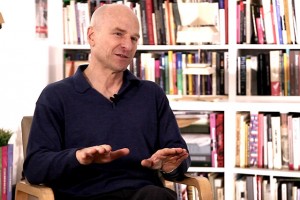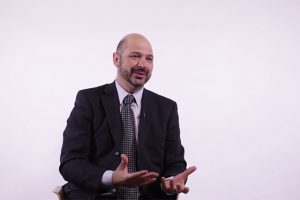The Electric Information Age Book
Harvard Prof. Jeffrey Schnapp on print-based communications, electric information age, and "dynabooks"
What are the boundaries of the humanities? What are the new forms of production of knowledge? Professor of Romance Languages & Literature at Harvard Graduate School of Design Jeffrey Schnapp on new forms of knowledge and digital media.
The humanities disciplines have been undergoing a very radical transformation over the course of the last twenty years. But it’s a transformation that has deep roots in the history of the evolution of those disciplines that make up the core humanities. Starting really in the immediate post-World War II era, when mainframe computing began to have a powerful impact on other areas of research, some early pioneers of what at that time was called «computational humanities» or «computing in the humanities» or «humanistic computing» or «humanities informatics» – it had many different labels – began experimenting with applying the power of mainframe computers and systems to the analysis of cultural objects.
I call it an area of experimentation, because it isn’t a new department, a new field in a conventional sense, it simply represents an umbrella under which we can group together a whole series of experimental approaches to some of the core questions that have animated the humanities disciplines from the very beginning, questions like: what is the meaning of a given cultural object, how do different categories of objects relate to aspects of the social history of a given country or place, what is truth, beauty, meaning in a given social circumstance, how do myths or stories undergo transformations, how do ideas become symbols, objects, how do they get translated into aesthetic objects and vice versa.
And our argument in the book is that the digital humanities are not about a continuation of traditional humanistic disciplinary habits and traditions – they go beyond that. There are many aspects that involve continuity, but they are also disruptive. And that disruption assumes the form of – to put it in a more positive framework – of a set of innovative possibilities. And those possibilities involve doing better work, scholarship of greater rigor, and performing scholarly work that has an audience, that’s vastly expanded.

Harvard Prof. Jeffrey Schnapp on print-based communications, electric information age, and "dynabooks"

Communication Scholar Grant Kien on Heidegger, Google glass, and autoethnography

Sociologist Viktor Vakhshtayn on technological evolution, military drones, and robotized power